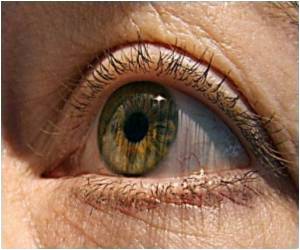The early cellular cause of dry eye disease have been identified by researchers at the Harvard Medical School in Boston.

The finding offers hope for new drugs that treat the cellular cause of the disease rather than its symptoms.
"Our study has promoted the further understanding of the pathogenesis of dry eye disease, which is fundamental to develop new treatments and thus improve quality of life for those with this disease," said Yihe Chen, a researcher involved in the work from the Schepens Eye Research Institute at the Massachusetts Eye and Ear Infirmary of the Department of Ophthalmology at Harvard Medical School in Boston.
To make their discovery, the scientists tested two groups of mice. The first group was normal and the second group was depleted of NK cells.
When both sets of mice were induced with dry eye disease under the same conditions, the disease was less severe in the mice depleted of NK cells than the normal mice.
This suggests that NK cells play a pivotal role in the development and severity of the disease, making them a target for the development of new drugs.
Advertisement
Source-ANI















